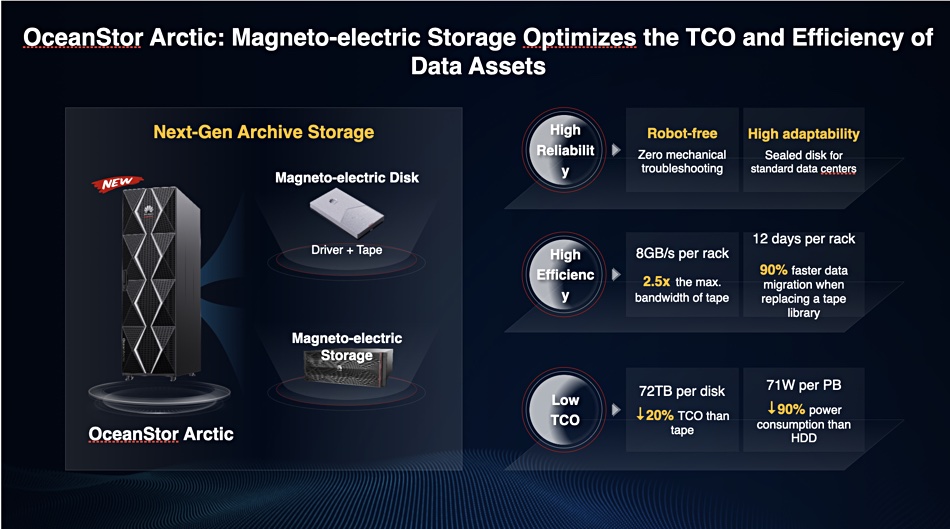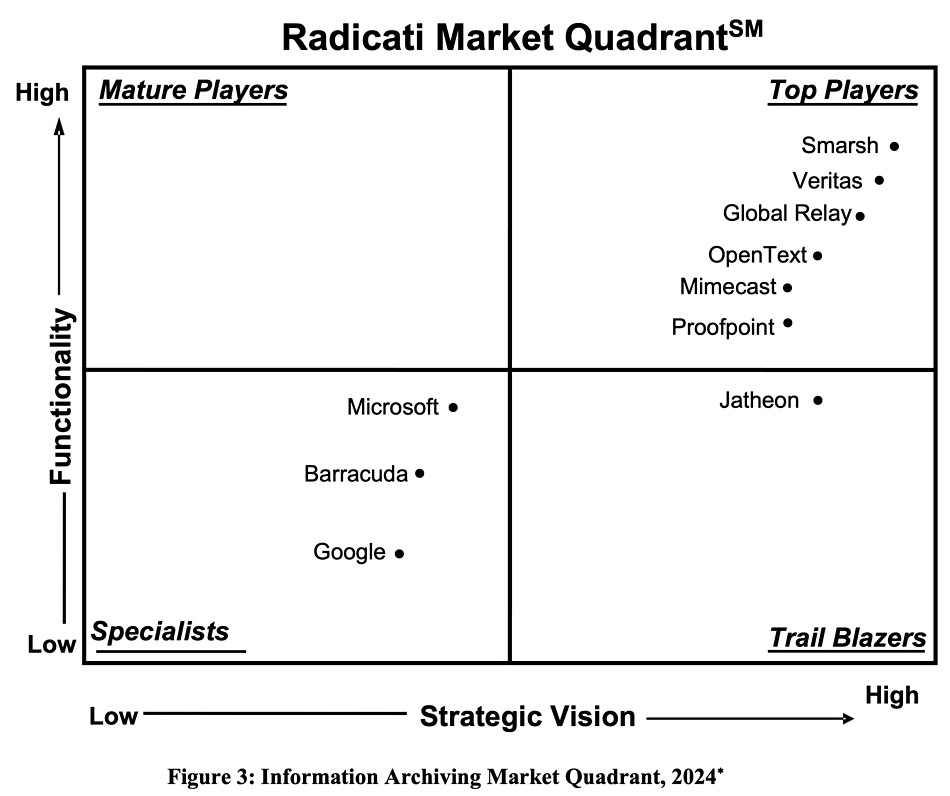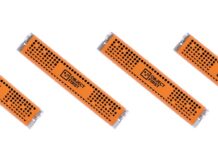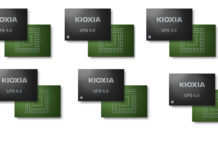Virtual distributed file system supplier Alluxio has been included for the second consecutive year in Forbes’s “America’s Best Startup Employers” which ranks the 500 top startups displaying excellence across employer reputation, employee satisfaction, and growth.
…
The DNA Data Storage Alliance, a SNIA Technology Affiliate, has announced its first two specifications for storage of digital data in DNA. They define a recommended method for storing basic vendor and CODEC information within a DNA data archive, and the CODEC provides the required conversion from digital information to DNA and back.
Unlike existing storage media, DNA does not have a fixed physical structure with a known start point. The two specifications are Sector Zero and Sector One. Sector Zero defines the minimal amount of information needed for the archive reader to identify the CODEC used to encode Sector One, as well as a pointer to the company or organization that synthesized or “wrote” the DNA. The reader can then access the data in Sector One and identify the CODEC used for the main body of the archive. The Sector One spec includes information such as a description of contents, a file table, and parameters to transfer to a sequencer.
The Sector Zero and Sector One specs are now publicly available, allowing companies to adopt and implement them. DNA Data Storage Alliance members include Catalog Technologies, Quantum Corp, Twist Bioscience Corp, and Western Digital.
…
A much higher quality Huawei OceanStore Arctic magneto-electric drive slide has come to us via analyst Tom Coughlan:

The actual drive is labelled “Magneto-electric Disk” (MED) with the commentary “Driver + Tape.” The right-hand upper section of the slide indicates that OceanStor Arctic is robot-free, meaning the MEDs are read and written in place, and employs sealed disks. That must mean that there is a tape drive inside the MED, unlike existing tape technology that relies on separate tape cartridges and drives. There must be, if the slide text is right, two motors per MED – one for the disk and one for the tape.
The right-hand lower section says it’s a 72TB disk with a 20 percent lower TCO than tape and 90 percent lower power consumption than hard disk drives. We aren’t told if the 72TB is raw or logical (after compression) capacity. We recently suggested that MED might involve spun-down disks and are now more convinced of this, given the two motors point above.
One more thing: The Magneto-electric storage chassis containing the MEDs must have a server to provide MED content cataloging and access. It may and probably will provide parallel access to the MED units it contains.
Huawei’s Data Storage Product Line has reiterated that they can’t reveal more details about OceanStor Arctic at this point of time.
…
IBM is expanding its sustainability portfolio with a suite of capabilities:
- Identifying and understanding sustainability possibilities with IBM IT Sustainability Optimization Assessment, with the option to leverage IBM’s portfolio of project and labor services to implement these actions.
- Evaluating end of life or underutilized IT equipment and placing it back into the circular economy with IBM Asset Recovery and Disposition.
- Securely removing end of life data with IBM Data Erasure Services.
Read a solution brief here.
…
TrueNAS supplier iXsystems today announced the company has been named a Strong Performer in the 2024 Gartner Peer Insights Voice of the Customer for Primary Storage. The report can be accessed here (subscription required).
…
Micron announced the appointment of ex-Intel CFO and CEO Robert “Bob” Swan to its board of directors. Swan was the stabilizing CEO at Intel after Brian Krzanich’s period, and before Pat Gelsinger returned as CEO in 2021.
…
NAKIVO Backup & Replication Proxmox VE will be the first backup offering to support data protection for Proxmox virtual environments. It can back up and restore data, applications, and operating systems off Proxmox VMs. NAKIVO already supports VMware, Hyper-V, and Nutanix AHV.
…
NetApp released commissioned YouGov research on the state of AI adoption in the UK business landscape. It found that just half (51 percent) of British organizations understand how AI can benefit their operations, with only 20 percent of UK businesses having a strong understanding of how they can harness AI technology. Spend on AI projects is set to increase in 2024 as leaders see it as crucial to their future business success. Most IT leaders are adopting AI to remain competitive.
…
NetApp has hired Pravjit Tiwana as GM and SVP of cloud storage. He will focus on accelerating the growth of NetApp’s first-party storage services in all three public clouds and reporting to CPO Harvinder Bhela. Most recently, Tiwana served as CTO at Gemini and CEO at Gemini APAC. Prior to that, Tiwana was general manager at AWS leading Edge Services, including Amazon CloudFront, AWS Edge Computing, AWS Data Transfer Operations, and Amazon Productivity applications.
…
Hyperscale analytics data storage supplier Ocient has scored $49.4 million in extended B-round funding, having raised $40 million in its 2021 B-round. Participants include Buoyant Ventures, Levy Family Partners, Riverwalk Capital, and Wolf Capital Management, as well as all prior major investors. Total funding is now $119 million. Ocient saw 109 percent year-over-year growth in revenue in its last fiscal year. The cash will be used to advance product capabilities and deliver hyperscale data analytics systems to its global customer base. Ocient CEO Chris Gladwin said: “The close of this latest round of financing is an indication that the need for the solutions we bring to market is growing across industries, and geographies.”
…
Data protector Rubrik announced GA of its Rubrik Enterprise Proactive Edition (EPE) supporting Data Security Posture Management (DSPM) for cloud, SaaS, and on-premises environments. This quickly follows Rubrik’s recent acquisition of Laminar.
…
Unstructured data manager Starfish celebrated its tenth anniversary, saying it manages well over an exabyte of capacity across its client base. The typical Starfish customer uses high-performance parallel file systems and scale-out NAS to service production workloads. These environments consist of billions of files, tens and sometimes hundreds of petabytes of capacity, and have myriad data management challenges.
…
Analyst house TrendForce says that starting this year, the HBM market’s attention will shift from HBM3 to HBM3e, with expectations for a gradual ramp in production through the second half of the year, positioning HBM3e as the mainstream HBM technology. SK hynix gained HBM3e validation in the first quarter, closely followed by Micron, which plans to start distributing HBM3e products toward the end of the first quarter, in alignment with Nvidia’s planned H200 deployment by the end of the second quarter. Samsung, slightly behind in sample submissions, is expected to complete its HBM3e validation by the end of the first quarter, with shipments rolling out in the second. Samsung is poised to significantly narrow the market share gap with SK hynix by the end of the year, reshaping the competitive dynamics in the HBM market.
…
Virtual datacenter supplier VergeIO has launched ioGuardian for VergeOS backup to minimize downtime if there are multiple drive or node failures. ioGuardian offers inline recovery, ensuring near-continuous data access without the need for traditional recovery time frames.
…
Veritas Technologies, about to be acquired by Cohesity, announced its position as a Top Player in the 2024 Information Archiving Market Quadrant from analyst firm The Radicati Group. This is the sixth time it’s been so placed with its Alta set of products.

…
Cloud storage supplier Wasabi has added the National Hockey League’s (NHL) Vancouver Canucks to its sports sponsorship roster. Wasabi becomes the Preferred Cloud Storage of the Canucks with extensive branding integration for the 2024 NHL season, while the Canucks benefit operationally from Wasabi’s cloud data storage services via a multi-year technology deal.








